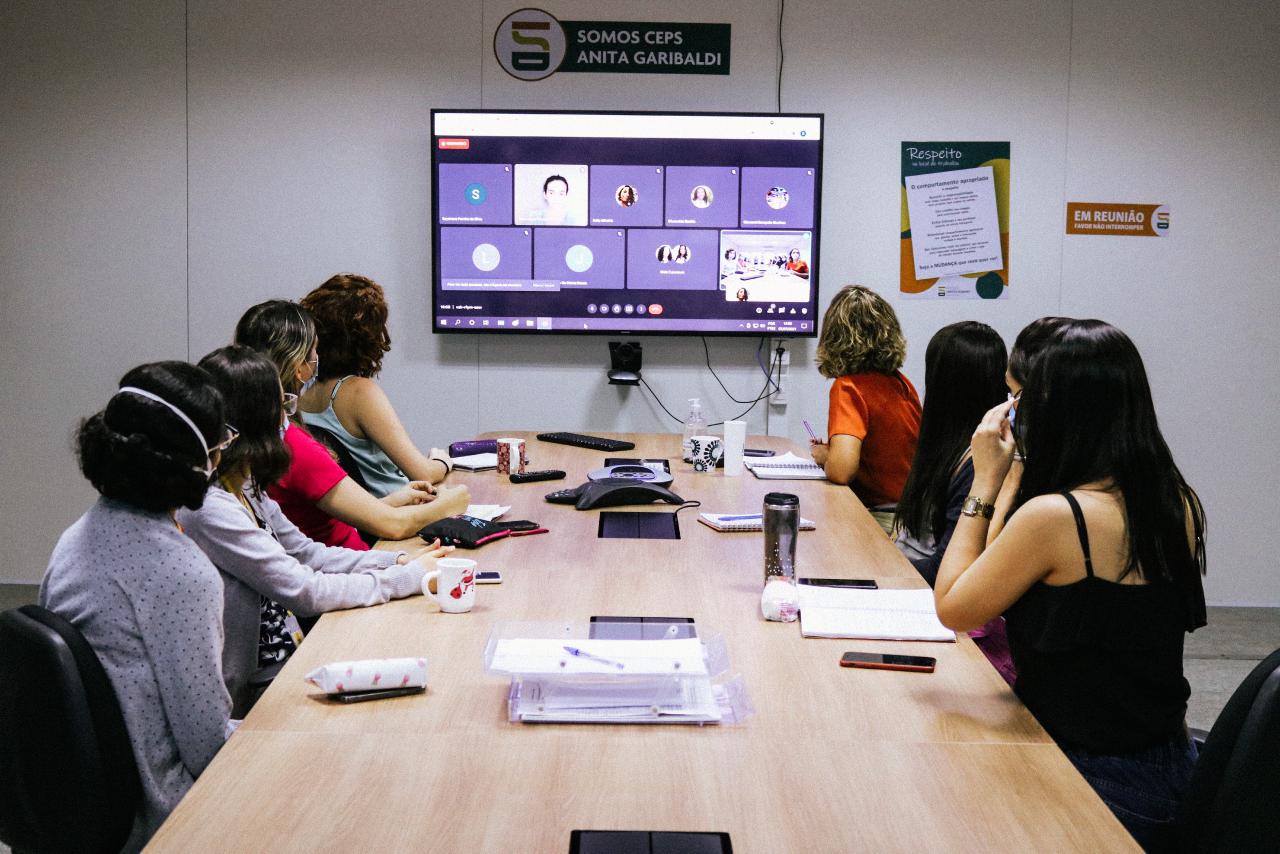Expanding black, female and peripheral representation, in addition to establishing actions to combat structural racism on a day-to-day basis, are paths pointed out by the sociologist and PhD in Social Sciences from the Federal University of Rio Grande do Norte (UFRN), Divaneide Basílio, for the construction of a society without prejudice. These themes were addressed this Wednesday (07/07) during the class of the postgraduate course 'Education for Global Citizenship', at the Santos Dumont Institute (ISD).
The central theme of the class was the discussion of issues related to gender, race, class and coping with racism. The meeting was mediated by Lilian Lisboa, preceptor and manager of the Center for Health Education and Research Anita Garibaldi. Students from the Multidisciplinary Residency in Health Care for Persons with Disabilities and from the Master's Degree in Neuroengineering at ISD participated.
For Divaneide Basílio, public policies need to focus on the black population. “Public policies in health and education need to look at the black person. In employability, it is necessary to look at people who have fewer opportunities because of their skin color. In public security, it is necessary to think about why black youth are exterminated and to think mainly about ways to change this reality”, argued sociologist Divaneide Basílio.
In addition, she stressed that the existence of women, black people and the less economically favored classes needs to be respected. “The central question is the right to exist and to be respected. There is a deep-rooted prejudice that is sometimes taken for granted. It means saying “she is cute but has bad hair”, for example, one of the thousands of small ways in which prejudice manifests itself”, said Divaneide Basílio, who is currently a councilor in Natal.
inequalities
In the Sustainable Development Goals (SDGs), the central theme of the subject Education for Global Citizenship, building an anti-racist society is included in goal Number 10, which aims to promote the social, economic and political inclusion of all, regardless of age, gender, disability, race, ethnicity, national origin, religion, economic or other status. In addition, the target aims to guarantee equal opportunities and reduce inequalities, in particular through the elimination of discriminatory policies and practices.
“Brazil is a dangerous place to be black and Rio Grande do Norte is one of the worst places to be black and young”, warned Divaneide Basílio. Reality can be drawn through data from the Atlas of Violence released in August 2020 by the Institute of Applied Economic Research (Ipea) and the Brazilian Public Security Forum (FBSP). In 2018, around 75% of homicide victims in Brazil were black. The study points out that in the country, the cases of murders of black people (black and brown) increased by 11.5% in a decade. “We want the exception to become the rule more and more, for us to stop being violence statistics and start occupying even more universities, city councils and much more”, added the doctor in Social Sciences.
As he explained during the lecture, the term intersectionality allows for a better understanding of inequalities and the overlapping of existing discriminations in society. This understanding is essential to change current behavior and the consequent adoption of an inclusive policy, defended Divaneide Basílio. “Systems of oppression have a different impact on each person according to their characteristics, I am a woman, black and from the periphery, I am subjected to gender, race and class prejudice. Black people are in the ranking of those who are most murdered and transgender people in Brazil have a life expectancy of 35 years, if a person is trans and black, they end up having more chances of suffering some type of violence”.
Education for Global Citizenship
The lecture presented by Divaneide Basílio is part of the program for the discipline Education for Global Citizenship, aimed at students of Multiprofessional Residency in Health Care for Persons with Disabilities it's from Master's in Neuroengineering from the Santos Dumont Institute (ISD). It is taught by professor-researcher and general director of ISD, Reginaldo Freitas Júnior.
The SDGs include global goals that are at the heart of the Santos Dumont Institute's work, such as quality education, health and well-being, innovation and the achievement of gender equality, as well as the empowerment of women and girls.
Text: Kamila Tuenia / Ascom – ISD
Photograph: Mariana Ceci / Ascom – ISD
Communication Office
comunicacao@isd.org.br
(84) 99416-1880
Santos Dumont Institute (ISD)
It is a Social Organization linked to the Ministry of Education (MEC) and includes the Edmond and Lily Safra International Institute of Neurosciences and the Anita Garibaldi Health Education and Research Center, both in Macaíba. ISD's mission is to promote education for life, forming citizens through integrated teaching, research and extension actions, in addition to contributing to a fairer and more humane transformation of Brazilian social reality.













